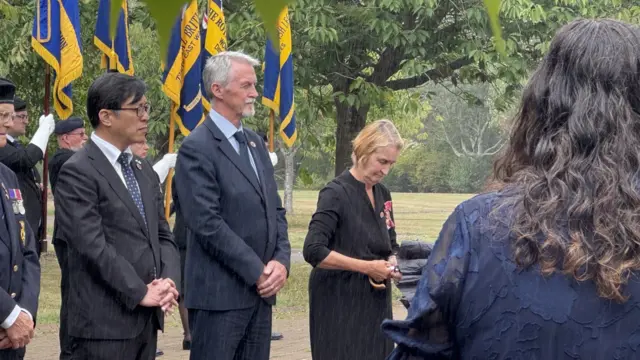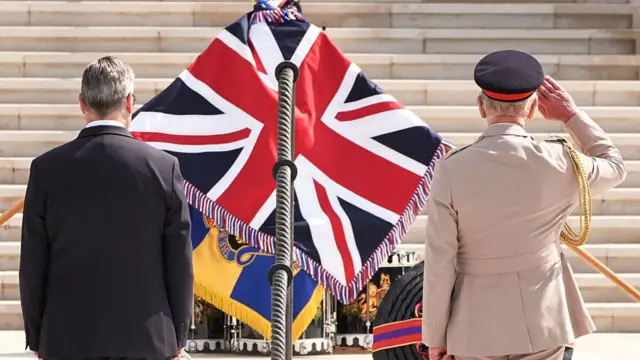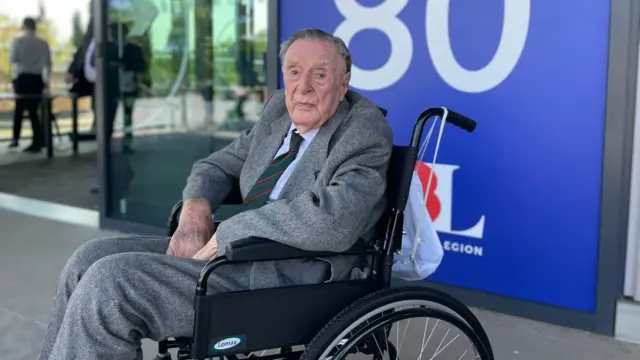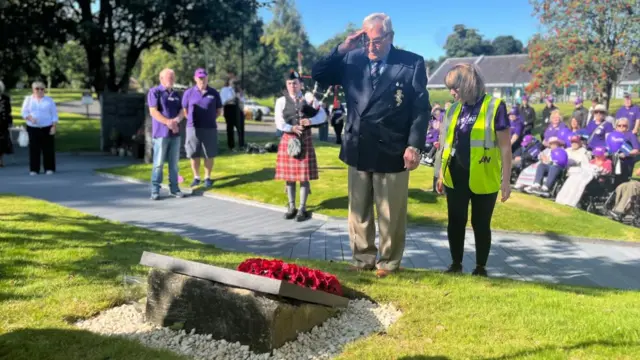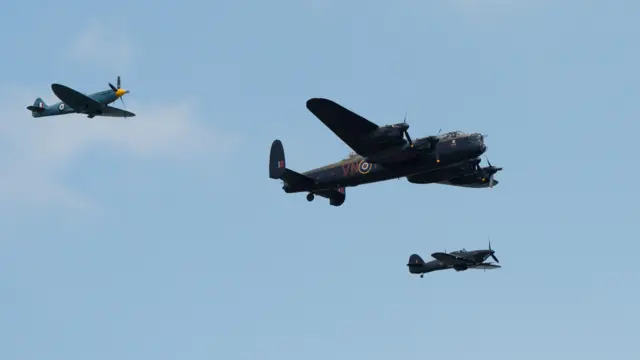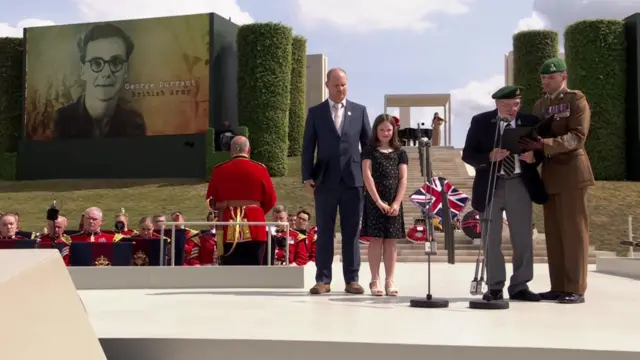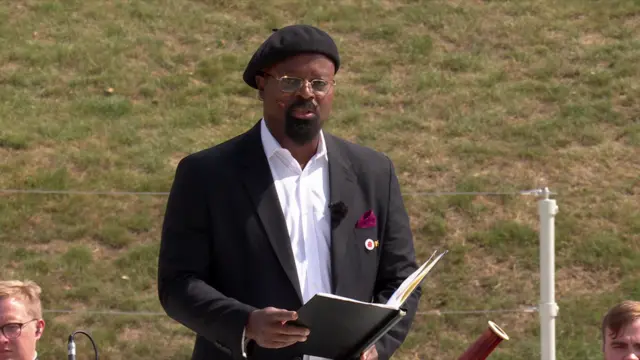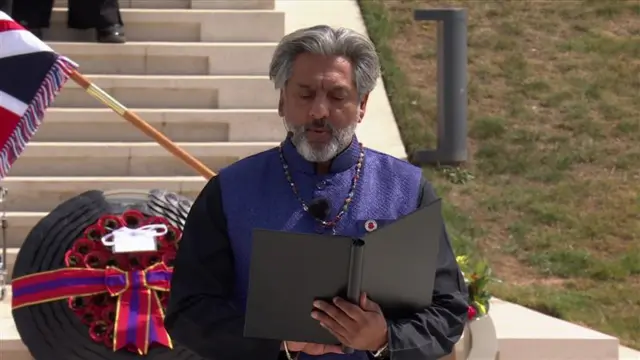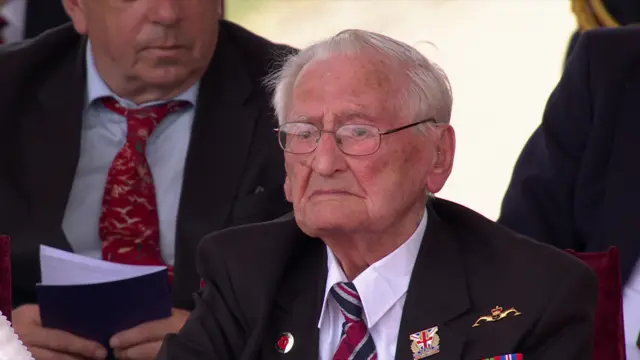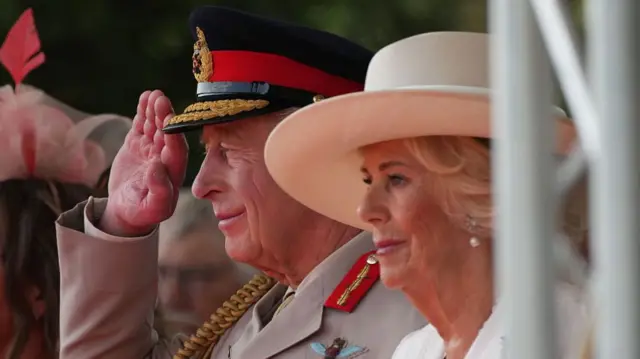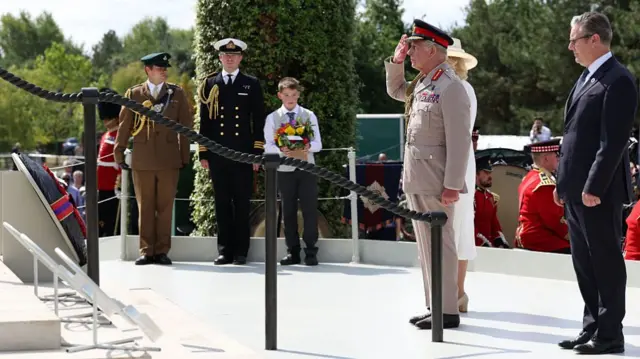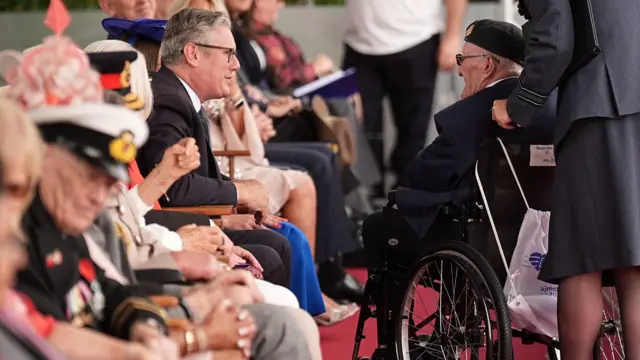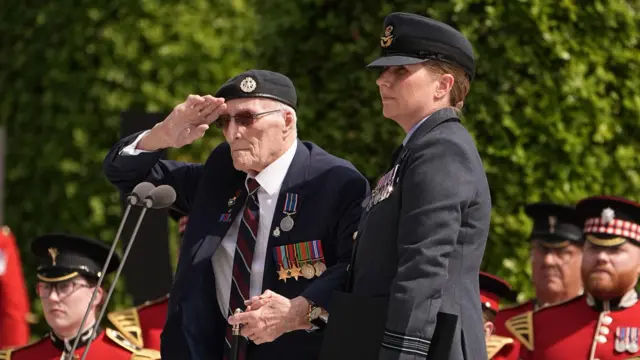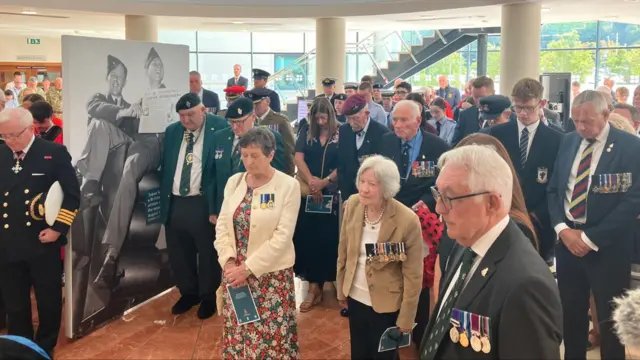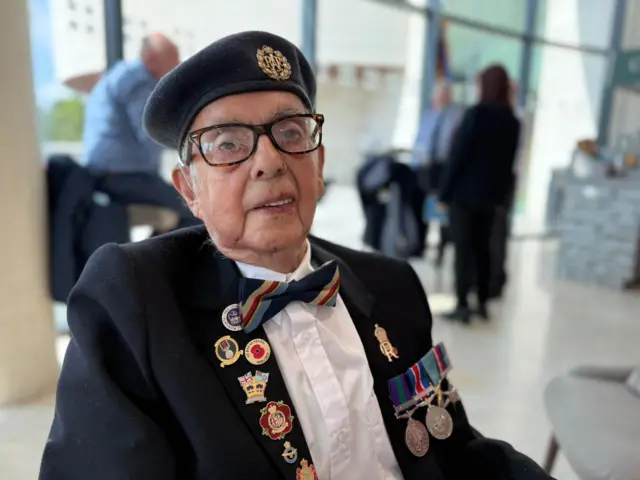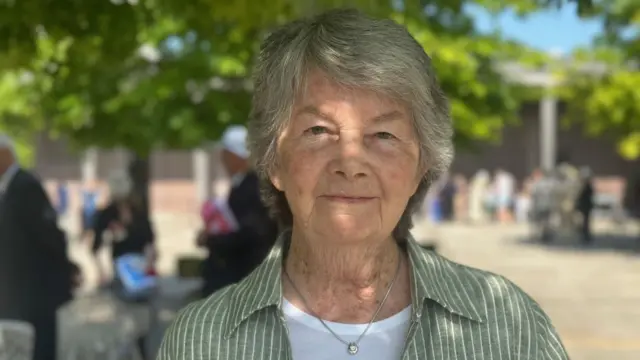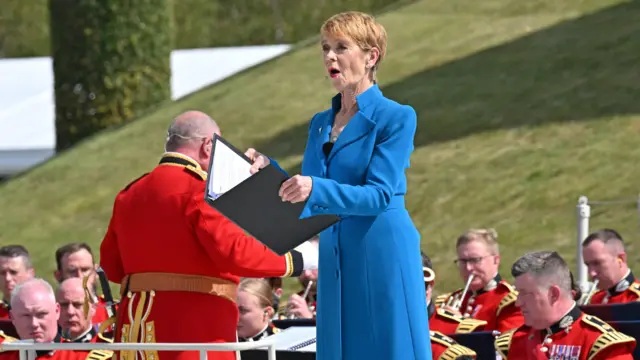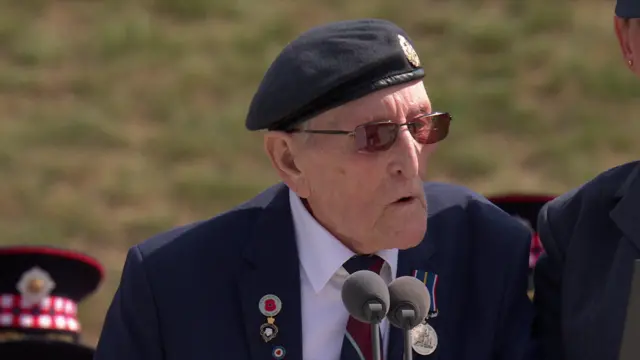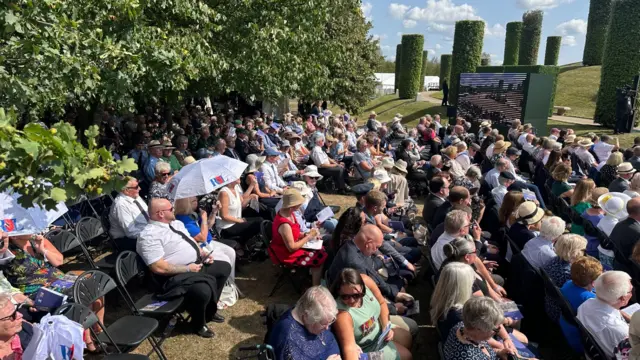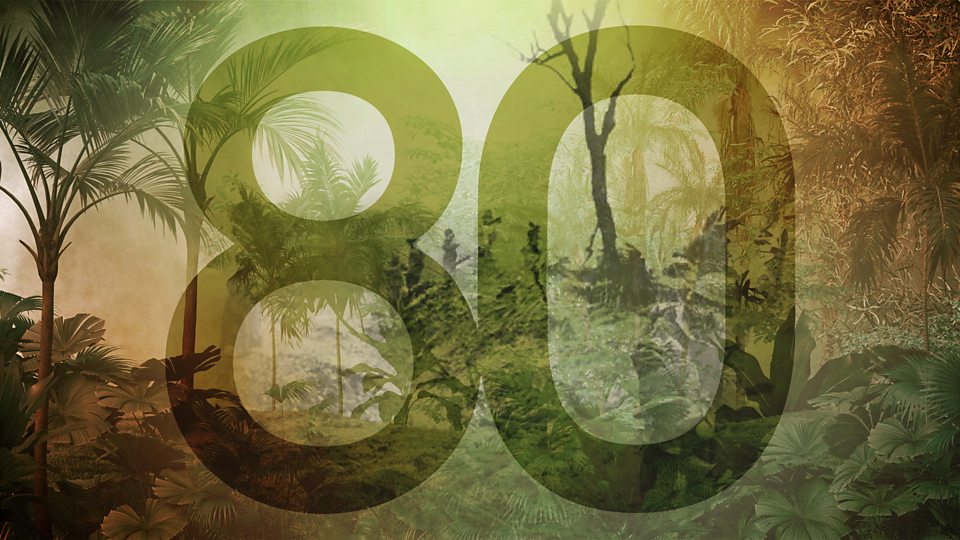Eighty years on, VJ day reminds us of 'price of freedom'published at 14:15 BST 15 August
 Adam Goldsmith
Adam Goldsmith
Live reporter
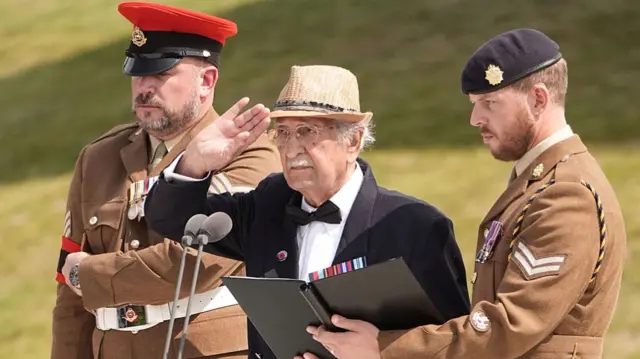 Image source, Getty Images
Image source, Getty ImagesEighty years ago today, World War Two was officially brought to an end with Japan's surrender.
Today, the King, Queen and Prime Minister Keir Starmer gathered alongside crowds and veterans at the National Memorial Arboretum in Staffordshire to pay their respects to those who fought the Japanese military in Asia.
We've got a recap of everything that unfolded, as an emotional ceremony saw veterans take the stage to offer tributes to fallen friends, before the event was capped off by an flypast by historic RAF aircraft.
Over in Tokyo, commemorations were also taking place - our correspondent there has more on Prime Minister Shigeru Ishiba's mention of the word "remorse" in his speech, the first time it has been used by a Japanese leader in more than 10 years.
The surrender was ultimately sparked by the US's devastating nuclear strikes on Hiroshima and Nagasaki - and one veteran who witnessed the aftermath of Hiroshima has shared the fright of what he saw on a BBC podcast.
And, while the 33 veterans present at the ceremony were celebrated for their sacrifice, the cost of war was laid bare in moving testimony.
After one veteran paid tribute to a fallen friend, 101 year-old George Durrant reminded the crowds that he was present "not as a hero but as someone who witnessed the price of freedom".
That brings our live page to a close, but we've got further coverage of Victory in Japan day across the BBC:
- Re-watch the commemoration service on BBC iPlayer
- Listen to the King's speech on the eve of the anniversary
- Or read our news story, for a full account of how the day unfolded

